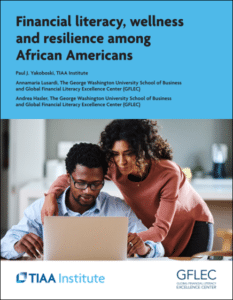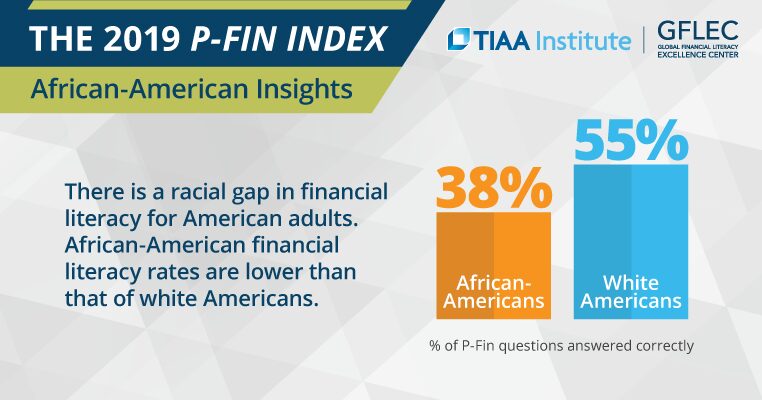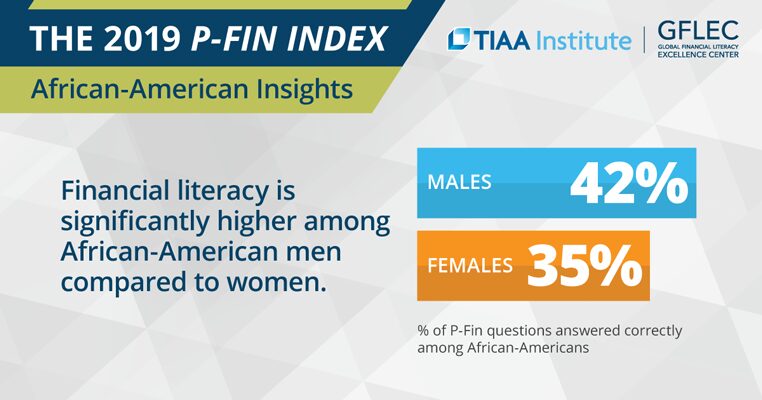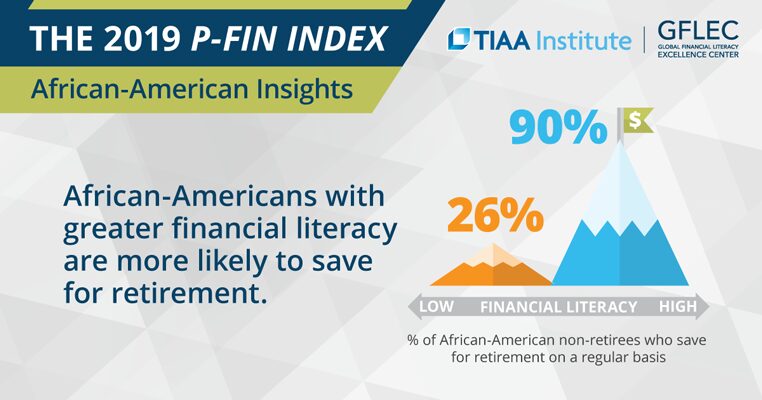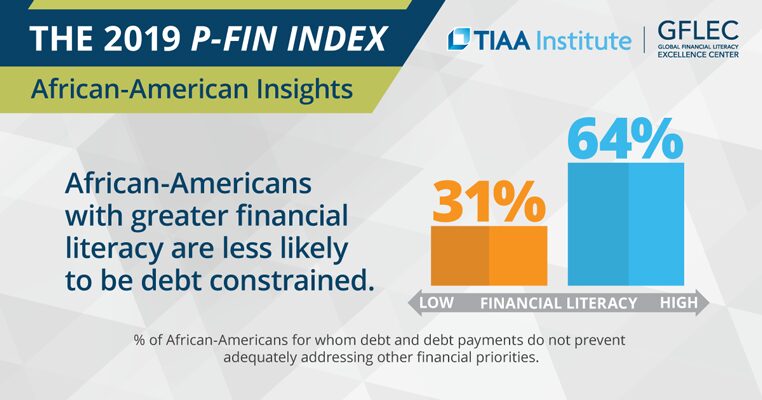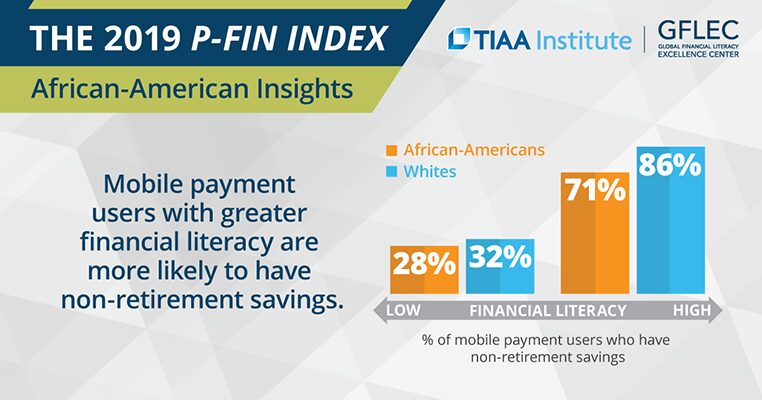Financial Literacy and Wellness among African-Americans
New Insights from the Personal Finance (P-Fin) Index
Authors of Recent Report
Paul J. Yakoboski, TIAA Institute
Annamaria Lusardi, GFLEC
Andrea Hasler, GFLEC
Click Here to Read the Executive Summary ➤
About the Survey
The nation’s 44 million African-Americans account for 13% of the U.S. population and have a significant impact on the economy, with $1.2 trillion in purchases annually. Yet the financial well-being of African-Americans lags that of the U.S. population as a whole, and whites in particular. The reasons for these gaps are complex, but one area of importance in addressing them is increased financial literacy. We find that there is a strong link between financial literacy and financial wellness among African-Americans.
This report uses the third wave of the TIAA Institute-GFLEC Personal Finance Index (P-Fin Index) to examine the current state of financial literacy and financial wellness among African-American adults.
Summary of Main Findings
- Personal finance knowledge among African-American adults lags that of whites. On average, African-Americans answered 38% of the P-Fin Index questions correctly, with only 28% answering over one-half of index questions correctly. The analogous figures among whites were 55% and 62%, respectively.
- Financial literacy varies across demographic groups within the African-American population. The observed patterns are consistent with variations identified in the U.S. population as a whole—financial literacy is greater among men, older individuals, those with more formal education, and those with higher incomes.
- Insuring is the functional area where personal finance knowledge is lowest among African-Americans, but it is also essentially just as low in the areas of comprehending risk, investing and identifying go-to information sources.
- Borrowing and debt management is the area of highest personal finance knowledge among African-Americans.
- There is a strong link between financial literacy and financial wellness among African-Americans. Those who are more financially literate are more likely to plan and save for retirement, to have non-retirement savings and to better manage their debt; they are also less likely to be financially fragile.
![]() Our research finds that African-Americans tend to exhibit lower financial well-being than the U.S. white population. Given the strong link between financial literacy and financial well-being, increased financial knowledge can lead to improved financial capability and behaviors.
Our research finds that African-Americans tend to exhibit lower financial well-being than the U.S. white population. Given the strong link between financial literacy and financial well-being, increased financial knowledge can lead to improved financial capability and behaviors.![]()
— Annamaria Lusardi, Academic Director at GFLEC

